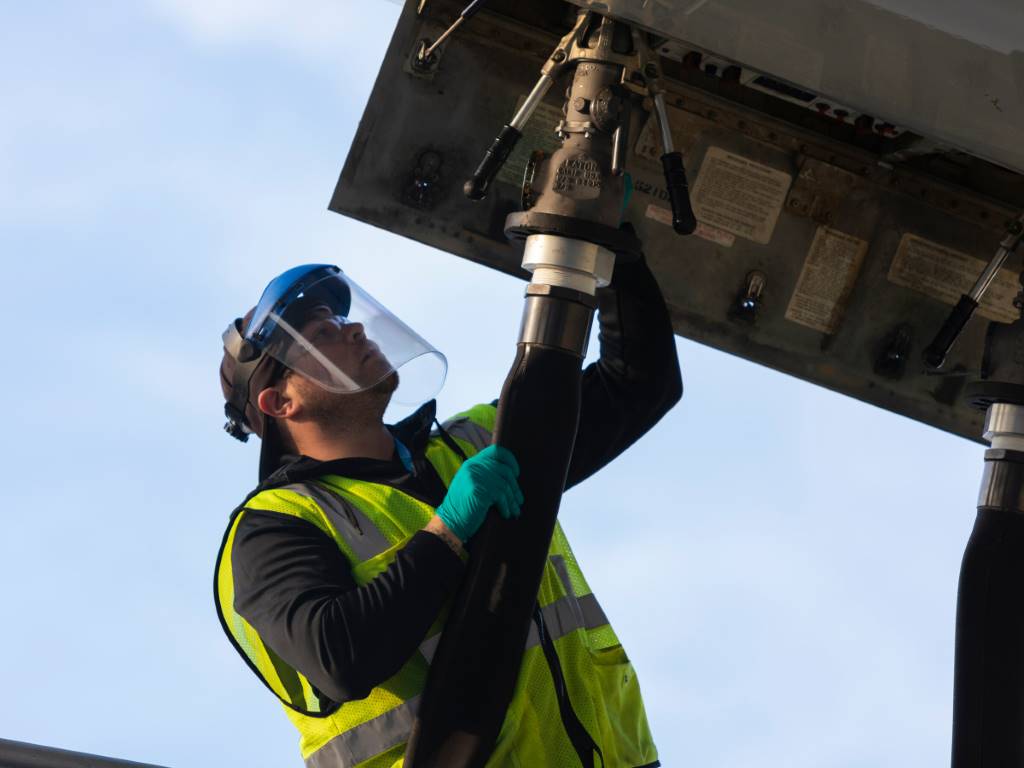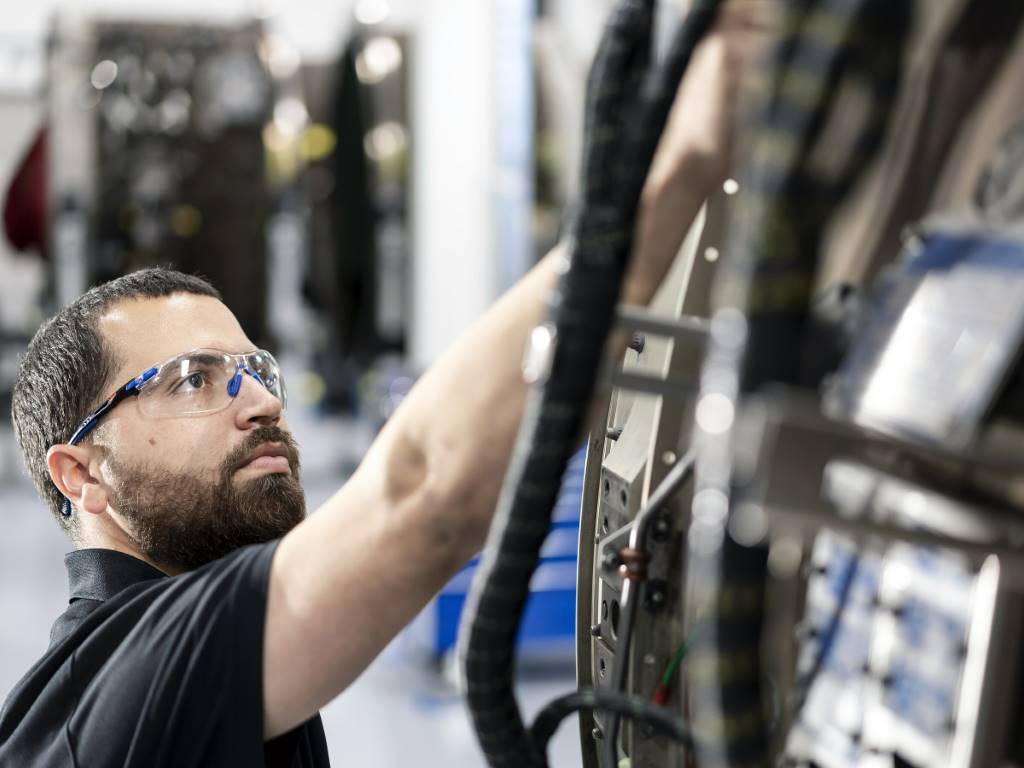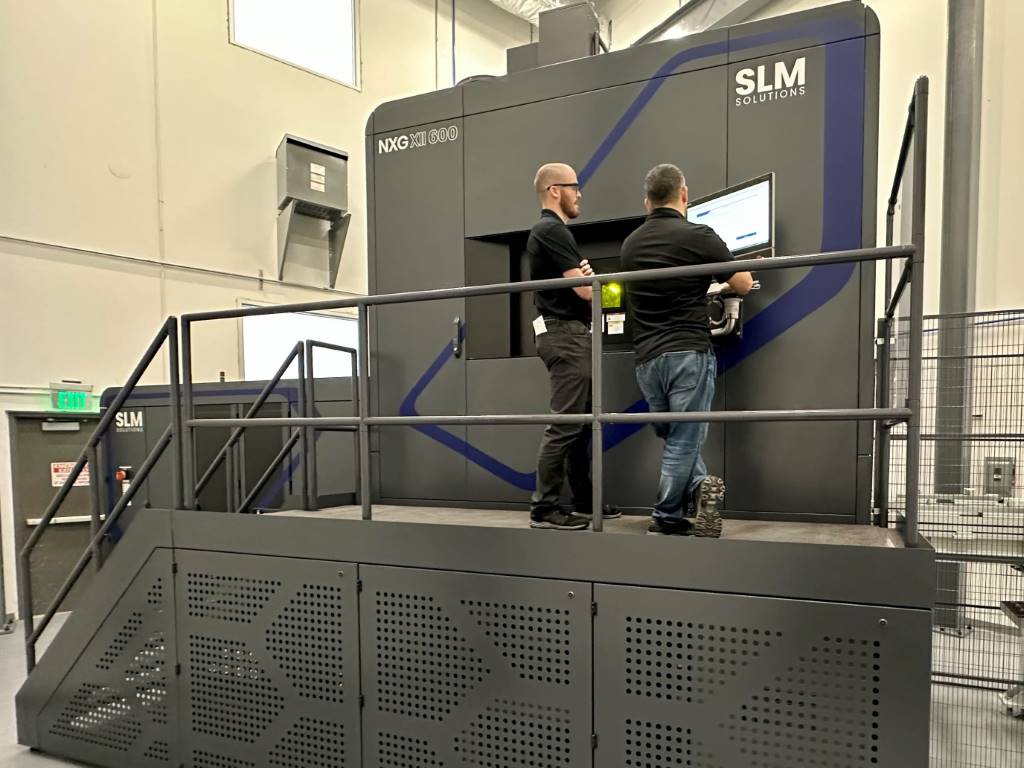Training on demand

What are the regional demands for engineering apprentices in the UK? Do we need any more hairdressers, beauticians and tattooists enrolling at college? These questions and more are tackled as Mike Richardson hears the thoughts of IPS International’s director, Ramsay Cowan.
If you want to become an engineer working in the South East of England, where are you going to work once you’ve completed your apprenticeship? Schools and colleges are keen to get people into employment but for the most part, many of the full-time jobs available in Kent these days are for hairdressers, nail bar technicians and tattoo artists.
Reopen Chatham Dockyard for shipbuilding and the situation might completely change. Young people could get excited about that and it would hugely benefit the employment in the region, regardless of the best efforts of our teachers and employment agencies in helping young people find a career path. Ultimately, Great Britain has divested much of its manufacturing overseas and in doing so, fulfilled Napoleon Bonaparte’s prophecy by becoming a nation of shopkeepers.
The colleges of higher and further education are still around, but speak to IPS International, an Ofsted-good South-East England-based Apprenticeship Training Provider, supporting employers to recruit/upskill their staff, and you’ll discover an employer trend for apprenticeship training that is more bespoke and tailored to the specific needs of a particular company.
“IPS was formed in 1986,” begins company director, Ramsay Cowan. “I used to work within the Scottish steel industry, eventually moving down to the steel works in Sheerness, Kent. I was involved in commissioning rolling mills with a high-tech, programmable industrial control equipment. However, once we’d completed the project, we realised that the local colleges didn’t have the capability to train the right calibre of people to operate the equipment, so we set up our own training centre onsite instead.
“Back then, many companies on the Isle of Sheppey were moving towards high-tech equipment and processes, so we began training their people too. We continued growing, but in 2000, we were acquired and divested as a non-core business, so a group of us bought the training division. It’s now a privately-owned company, I’m a director, a shareholder and we have continued to grow the business ever since. We now employ around 90 people and conduct training in disciplines like engineering, electronics, process control, hydraulics and pneumatics. We have around 700 apprentices engaged in programmes.
“Anyone interested in starting an apprenticeship can enrol their interests on a database which is fed out to various providers which we manage for our customers. Most of the work we do for employers involves getting the recruitment part correct at the very beginning; we want to help our customers hire the right calibre of person – someone who is really suitable, someone who you know is going to make the most of it. We use various screening tools for people going to interviews and roleplay, and the apprentices that stay the course and are the best, are the ones that have had the most preparative work done at recruitment stage. This extra care at the recruitment stage is absolutely critical.”
An engine for talent
Cowan adds that it’s the first year IPS has been working with the new apprenticeship training standards - a complete revision of what used to be known as the Framework Apprenticeship Scheme.
“The new standards have been produced by the industry’s lead bodies to enable the industry to draw money from the Education and Skills Funding Agency (ESFA). They’ve been implemented by getting the employers involved and looking at the kinds of programmes that apprentices have been taught over time and agreeing on what is still relevant and what needs changing. All our engineering programmes – bar one which is converting soon – are running on the new standards, which means it’s more up-to-date in terms of subject matter.”
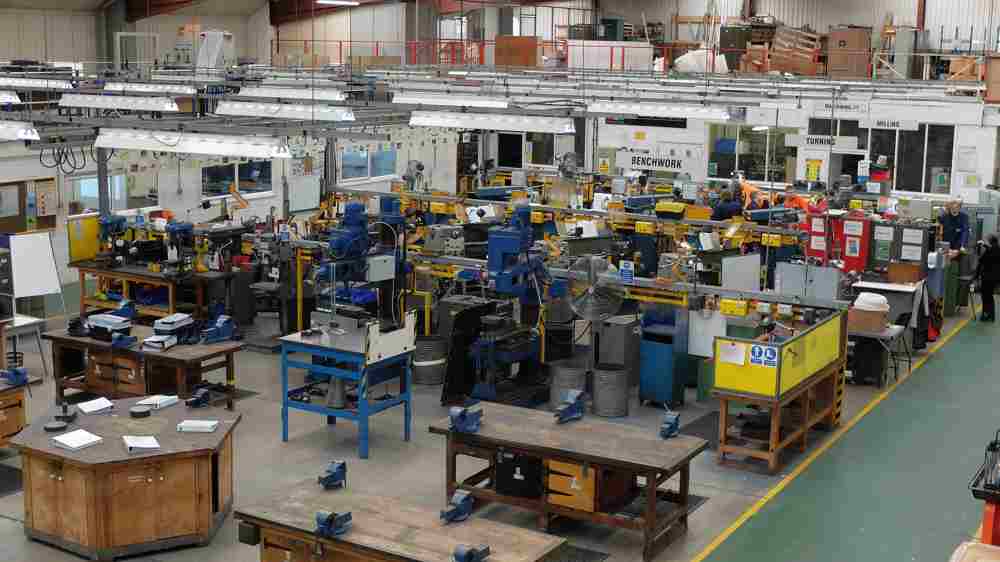
Introduced by Government, the Apprenticeship Levy is a funding system aimed to create three million new apprenticeships by 2020. Levy-paying and non-levy paying employers can both access the apprenticeship funding.
“The Apprenticeship Levy is a great idea, but it’s taking companies too long to get accustomed to the increase in administrative work. Previously, the funding came to the providers: an employer would send us a trainee, we’d take care of it and you’d get your training. The new Levy has really hit everyone hard, and I know that a lot of training providers have suffered in the last couple of years as a result of the changeover.”
The big question is whether Government is doing enough to get more involved in manufacturing - and particularly in helping SMEs with their training needs?
“Whilst Government understands the priorities - and has mobilised the employers and various other people to realise that the aerospace sector is important - it has made an absolute shambles of the administration of the funding to actually allow this to happen, particularly where new training providers that have never delivered solutions before, have been allocated huge chunks of funding to provide training provision and have consequently failed miserably. The ESFA has had real trouble in terms of getting training providers through the approval process with the result that it actually cut out a lot of established providers who already had a proven track record in delivering successful training because it now goes through a tender system. Now, we’ve still got a lot of good providers struggling on with very little funding, but also a lot of new ones too who have somehow got funding, and have then collapsed because they can’t deliver the training properly. The administration in terms of the how the new funding works has been a huge stumbling block.
“IPS runs engineering apprenticeships which have been prioritised and Government is trying to guide us towards the types of apprenticeships it would like to see more of, funding them well and every now and then, cutting funding back because it feels it doesn’t need a certain type of skill in industry anymore. The government is using this system as a kind of tap to control the different types of apprenticeships.”
Training and gaining
I’m interested to learn more about IPS’ training programmes and whether they align themselves in any way to other UK training programmes currently in existence?
“It’s a balance between making best use of what we have already got, because our niche in Kent focuses on engineering and electronics. Yes, the local colleges do this too, but our customers tell us we do it better because we’re flexible and tailor our training programmes to individual companies. But we also need to survive as a business, so we have to look and see where funding is available and providing it falls within our remit, we follow the money.”
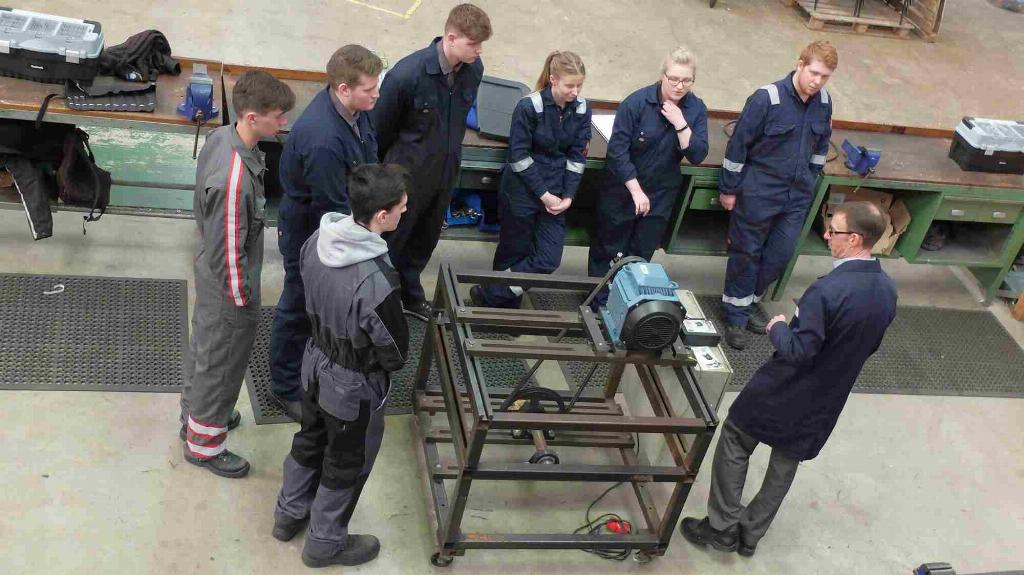
In terms of the split between practical and theory on IPS’ apprentice training courses, Cowan says that for Year One engineering apprentices, it’s 70% practical and 30% theory. Years Two and Three is when the apprentices go back onsite, but return for day release each week to obtain their technical certificate. The other four days involve learning and working with experienced craftspeople onsite.
“Government requires that if a training provider is applying for funding, they must be able to demonstrate at least 20% ‘off-the-job’ training during an apprenticeship and it needs to be logged.”
Would it help if UK engineering training related academic institutions had a clear statement from industry that they expect to recruit ‘X’ amount of apprentices each year?
“It’s useful to see any data by region on potential demand for new entrants. If the demand is genuinely not there, we can gear down our training provision. If information came from a customer for a new demand, we would talk to them to find out what is involved, what kinds of qualifications we’re looking at and then make a judgement on whether we can adapt to suit this requirement. IPS offers training in all sorts of disciplines, but what sets us apart is our training processes.”
Childhood’s end
In terms of a child’s free time, hasn’t the march of technology and changing social and parental habits combined to seriously affect their interest in simple engineering tasks like building Airfix model kits, gliders or kites? Children seem much more content staying indoors playing on their Xbox or smart phone than having ‘learning adventures’, therefore they’re less likely to develop practical skills. What’s Cowan’s take on this?
“It’s much harder for today’s kids to understand the practical side of engineering because they have become more used to dealing purely with information than ever been before,” he concludes. “We are having to retrain people in basic practical tooling skills – the kinds of things we used to expect people to do naturally. A lot of basic practical skills have been lost through the schools because the practical hands-on lessons have gradually disappeared. To be fair, these youngsters haven’t been exposed to hands-on disciplines the way that previous generations have.”

Thanks in part to UK aerospace manufacturing, the engineering sector contributes more than a quarter of the UK’s total GDP. But whilst it can be said that we risk the country’s economy if we do not collectively encourage young people to consider engineering apprenticeships, the engineering jobs need to be there in the first place – and this simply isn’t the case in the South East of England. Young people still need to find work, so expect the influx of hairdressers and nail bar technicians to continue rising. Perhaps the spectre of Brexit will bring a positive outcome after all. The way things are going, the UK may soon need to start manufacturing everything itself again.





